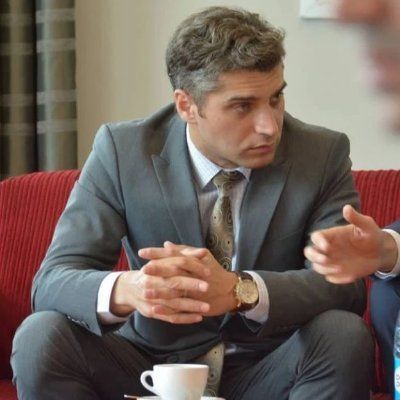Last taboo in Armenian politics: Pashinyan's truth about Garabagh [OPINION]
![Last taboo in Armenian politics: Pashinyan's truth about Garabagh [OPINION]](https://www.azernews.az/media/2025/06/05/pashinyans_garabagh_truth49682390.png)
In a bold and, for many, shocking departure from decades of nationalist rhetoric, Armenian Prime Minister Nikol Pashinyan recently described Azerbaijan’s retaking of Garabagh as a "blissful event"—not for Baku, but for Armenia itself. The statement, jarring in a country still emotionally tied to the loss of this contested region - but part of Azerbaijan in fact- has sparked a political firestorm in Yerevan. Yet however uncomfortable it may be, Pashinyan’s clarity deserves more attention than condemnation. His words signal a painful but necessary reckoning: Armenia’s future lies not in revanchism, but in regional peace, realistic diplomacy, and political maturity.
Pashinyan’s stance is no accident. Since the end of the 2020 war, when Azerbaijan regained control over much of Garabagh, followed by the complete withdrawal of Armenian forces and cleansing of Armenian separatists in 2023, the prime minister has tried to reposition Armenia’s national narrative. He has emphasized internal reform, border demarcation, and building relations with neighbors, including Turkiye and Iran. Yet, his efforts have come at great personal and political cost. The Armenian opposition has branded him a traitor and the "weakest leader in Armenian history." Mass protests have tried, and failed, to force his resignation.
At the heart of the opposition’s anger lies a refusal to relinquish a deeply rooted revanchist ideology: the belief that Armenia’s destiny is tied to regaining lands lost in war. For these groups, the occupation of Garabagh was not just a military strategy, but it was a cornerstone of national identity. They argue that without Garabagh, Armenia is weaker, more vulnerable, and directionless. But this worldview has proved both economically and diplomatically disastrous. It trapped Armenia in a decades-long conflict that isolated it regionally and deepened its dependence on Russia, a partner that proved to be unreliable when it mattered most.
Revanchism today is more than a nostalgia for the past; it is an active impediment to peace. Armenian hardliners stall negotiations with Azerbaijan by demanding guarantees that are not only unrealistic but fundamentally incompatible with the principles of international law. They continue to press for autonomy or independence for the Garabagh Armenians, despite the fact that the region is now fully under Azerbaijani control, and its former population has voluntarily left. These maximalist positions alienate potential international partners, complicate Armenia’s relations with the European Union and the United States, and most critically, prolong the stalemate with Baku.
Azerbaijan, for its part, has made clear its red lines: Garabagh is Azerbaijani territory, period. Yet President Ilham Aliyev has signaled a willingness to sign a peace treaty and normalize relations, provided Armenia recognizes Azerbaijan’s territorial integrity. The door to a comprehensive agreement is open, but Yerevan cannot walk through it so long as segments of its political elite continue to live in a fantasy of restoration.
Pashinyan’s framing of Garabagh’s loss as a "blissful event" is therefore less about celebrating defeat and more about liberating Armenia from the shackles of a destructive ideology. With the military chapter of the conflict closed, the prime minister sees an opportunity for Armenia to pivot, to stop defining itself in opposition to its neighbors and to instead focus on healing its fractured institutions, repairing its economy, and reimagining its role in the South Caucasus.
This pivot is not easy. The trauma of loss, displacement, and historical grievances runs deep in Armenia’s national consciousness. But clinging to myths of redemption through occupation does a disservice to those very traumas. It turns memory into a political weapon and prevents a war-torn society from pursuing dignity through peace.
Armenia now stands at a crossroads. One path leads toward reintegration with the world: economic partnerships, infrastructure development, and perhaps even eventual reconciliation with Azerbaijan and Turkiye. The other path is already familiar—populist mobilization, geopolitical dependency, and international isolation. Pashinyan has chosen the former. His critics, emboldened by nationalist fervor, are betting on the latter.
The choice should be obvious, but it is also hard. True leadership is rarely popular in the moment. History tends to be kinder to those who act with foresight than to those who merely echo the passions of their time. If Pashinyan survives the storm he has stirred, he may well be remembered not as a weak leader, but as a transformative one—the first Armenian statesman in a generation to put peace above pride.
The region, battered by war and haunted by its history, doesn’t need more martyrs or slogans. It needs maturity, pragmatism, and a willingness to accept the world as it is, not as it once was. Garabagh is gone. Armenia has the chance to remain, not as a shadow of its past, but as a beacon of what comes after.
Here we are to serve you with news right now. It does not cost much, but worth your attention.
Choose to support open, independent, quality journalism and subscribe on a monthly basis.
By subscribing to our online newspaper, you can have full digital access to all news, analysis, and much more.
You can also follow AzerNEWS on Twitter @AzerNewsAz or Facebook @AzerNewsNewspaper
Thank you!

